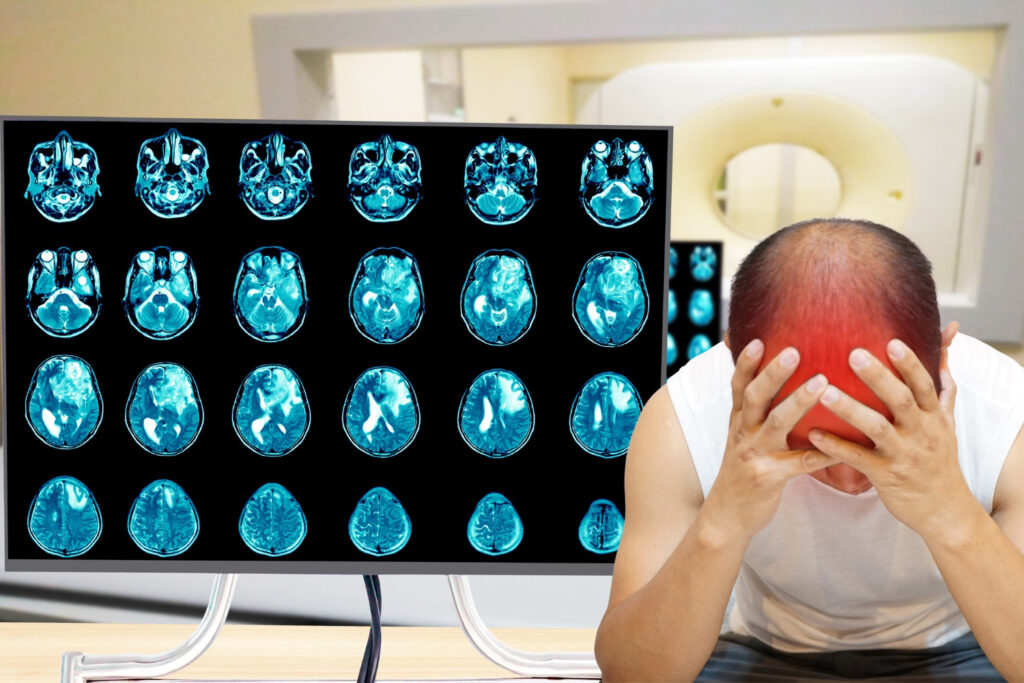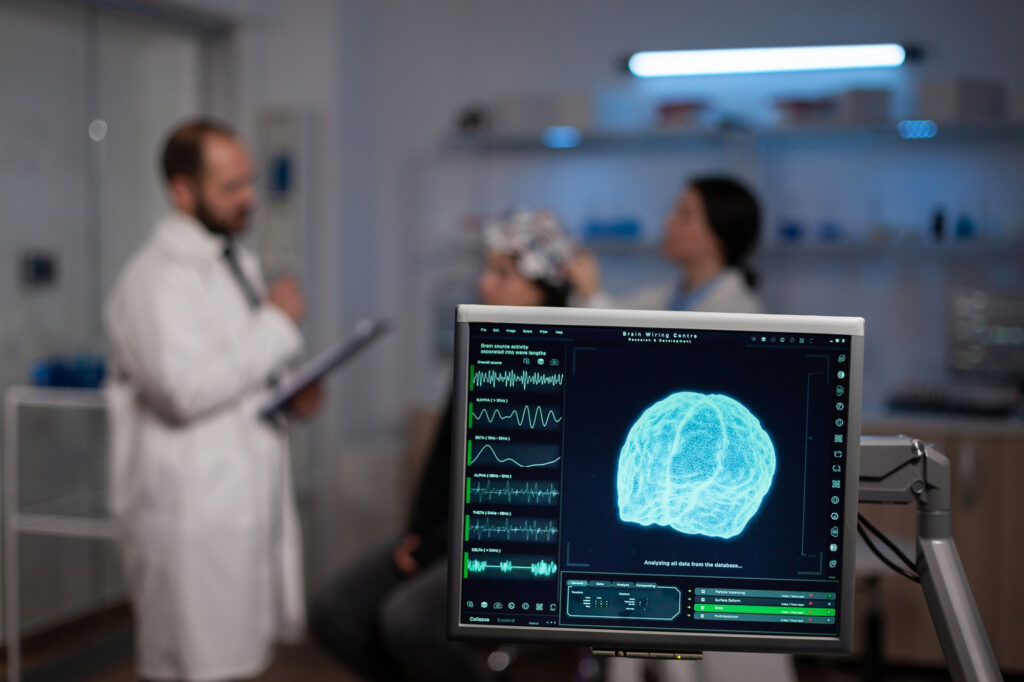The human brain serves as an exceptional organ by steering all actions and thoughts together with emotions. The experience of tumor development causes alarming fear in patients. At MB Hospitals neurosurgeons show both medical expertise and compassion to guide patients through diagnosis together with treatment and recovery using state-of-the-art practices. This text provides a straightforward explanation about brain tumors alongside treatment possibilities.
What is a Brain Tumor?
The human brain develops abnormal cellular growths which represent medical professionals as brain tumors. The growths can occur in either benign or malignant forms. Such noncancerous growths become dangerous when they apply pressure on crucial brain components.
The human brain hosts two types of tumors either as self-developed formations known as primary tumors or as metastatic tumors that migrate from elsewhere in the body. Doctors need to know the tumor type in order to determine the most effective treatment strategy.
Common Symptoms of Brain Tumors
Symptoms depend on the size and location of the tumor, but some common signs include:
- Headaches — Frequent or severe, especially in the morning.
- Seizures — Sudden, uncontrolled movements or convulsions.
- Memory Problems or Confusion — Trouble concentrating, forgetfulness, or personality changes.
- Vision or Speech Issues — Blurred vision, double vision, or difficulty speaking.
- Weakness or Numbness — Often on one side of the body.
- Balance Problems — Trouble walking or dizziness.
If you notice any of these symptoms, it’s important to seek medical attention right away. Early detection can make a big difference.

How Are Brain Tumors Diagnosed?
At MB Hospitals, neurosurgeons use advanced technology to diagnose brain tumors accurately. The process may include:
- Neurological Exam: Testing reflexes, muscle strength, coordination, and senses.
- Imaging Tests: MRI and CT scans create detailed pictures of the brain to spot abnormalities.
- Biopsy: Taking a small sample of tissue for lab analysis to determine if the tumor is cancerous.
- Electroencephalogram (EEG): Monitoring brain activity, especially if seizures are present.
With these tools, doctors can pinpoint the tumor’s location, size, and type, helping them choose the most effective treatment.
Treatment Options at MB Hospitals
The medical care plan for each patient depends on tumor characteristics including type and size and position and on their general health status. Patients of MB Hospitals benefit from their neurosurgery team that delivers multiple advanced medical treatments.
1. Surgery:
- The most common treatment for accessible tumors.
- Medical teams during surgery attempt to extract maximum tumor mass while preserving neurotypical brain structures.
- MB Hospitals performs sophisticated surgical operations which yield exact and safe medical outcomes.
2. Radiation Therapy:
- Cancer cells become eliminated by beam therapy using high levels of energy.
- Medical facilities perform radiation therapy after surgical interventions and treat unoperable tumors through this technique.
3. Chemotherapy:
- Medication of high potency destroys tumor cells or halts their development.
- Patients require either oral administration or intravenous administration of these drugs although they often need radiation along with the treatment.
4. Targeted Therapy:
- Special medication exists that targets cancer cells yet stays safe for regular human cells.
- Targeted therapy works for cancer variations that possess particular genetic mutations.
5. Rehabilitation:
- Following treatment hospital patients might require physical therapy and speech therapy and occupational therapy to recover their lost abilities.
The neurosurgeon team at MB Hospitals collaborates frequently with oncologists, radiologists and rehabilitation specialists to deliver comprehensive care that produces the maximum favorable results.

Life After Treatment: Recovery and Support
Recovering from a brain tumor can be a challenging journey, but MB Hospitals is there every step of the way. They offer post-treatment care, including:
- Regular Follow-Ups: Monitoring for any signs of recurrence.
- Counseling and Support Groups: Helping patients and families cope emotionally.
- Lifestyle Guidance: Tips on nutrition, exercise, and mental wellness for long-term health.
Patients typically recognize that having robust support changes their recovery significantly. The MB Hospitals medical staff delivers customized care with continuous support during recovery periods to their patients just like they would family members.
When to See a Doctor
Anyone facing continuing headaches and seizuring with no clear cause together with unexplained changes in mental processes or body movement ought to seek medical attention right away. An early medical diagnosis leads to higher chances of effective treatment succeeding.
MB Hospitals utilizes skilled practitioners together with modern equipment and compassionate treatment to deliver superior neurosurgical medical care to patients. The team works with patients through individual treatment plans because they comprehend that each patient requires a tailored approach that will lead them to health improvement.
Contact MB Hospitals today for consultation or help regarding brain tumors. By gaining knowledge about your health you obtain power which helps you overcome any obstacle that comes your way.


